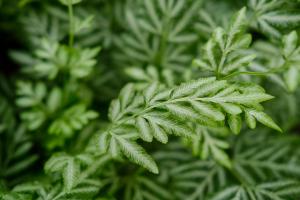Can I Water Plants with Pool Water?
Many homeowners with swimming pools often wonder whether it's okay to use pool water to water their plants. The answer is not a simple yes or no. There are several factors to consider before using pool water for gardening purposes.
The Chemical Makeup of Pool Water
Pool water contains chemicals that are added to maintain water clarity and prevent the growth of algae and bacteria. Some of these chemicals include chlorine, bromine, and cyanuric acid. While these chemicals are safe for swimming, they can be harmful to plants if used improperly.
Chlorine, for instance, can damage the leaves and roots of plants if it's present in high concentrations. Similarly, bromine and cyanuric acid can cause salt buildup in the soil, which can affect plant growth.
The Risks of Using Pool Water on Plants
The chemicals in pool water can also affect the pH level of the soil, making it more acidic. Most plants prefer a slightly acidic or neutral pH level. Using pool water to water your plants constantly can create soil that's too acidic, depriving the plants of the nutrients they need to grow.
Furthermore, when pool water is used on plants, it can leave behind a residue of chlorine or salt on the leaves. This residue can cause the leaves to burn or become discolored, reducing the plant's ability to photosynthesize and produce energy.
The Benefits of Using Pool Water on Plants
Despite the risks, there are some benefits to using pool water for gardening purposes. For instance, pool water can be a useful source of water for plants during dry spells or droughts.
Additionally, if pool water is properly treated, with the right balance of chemicals and pH levels, it can be used safely on some types of plants. Certain plants, like cacti and succulents, are more tolerant of salt, and can thrive in soil with slightly elevated levels of this mineral.
How to Safely Use Pool Water on Plants
To use pool water safely on plants, it's important to first test the water to ensure that it's properly balanced. Testing kits are available at most pool supply stores or online. By testing the water, you can determine whether the pH and chemical levels are safe for plants.
Alternatively, you can leave pool water to stand for several days before using it on plants. This will allow the chemicals to dissipate, making the water less harmful to plants.
In addition, it's important to avoid watering plants with pool water during periods of peak chlorine use, such as when the pool is being shocked or treated. During these times, the chlorine concentrations in the pool water can be high, and can pose a greater risk to plants.
Conclusion
While it's possible to use pool water on plants, it's important to do so with caution. The chemicals in pool water can be harmful to plants, especially if they're used in high concentrations or on a regular basis. However, with proper testing and treatment, pool water can be a valuable source of water for plants during dry spells or droughts.

 how many times do yo...
how many times do yo... how many planted tre...
how many planted tre... how many pine trees ...
how many pine trees ... how many pecan trees...
how many pecan trees... how many plants comp...
how many plants comp... how many plants can ...
how many plants can ... how many plants and ...
how many plants and ... how many pepper plan...
how many pepper plan...
































